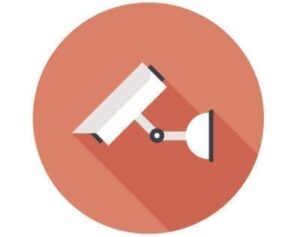A multi-partisan group of British lawmakers is pushing the government to blacklist camera equipment from Hikvision and Dahua. The group is made up of 67 MPs and Lords from across the political spectrum, and argues that the government should take a company’s human rights record into account when procuring new technology.

As it stands, Hikvision may be one of the most popular providers of CCTV surveillance technology in the UK. The advocacy group Big Brother Watch sent out thousands of Freedom of Information requests to public bodies across the country, and many of those that responded acknowledged that they are currently using Hikvision tech. The final tallies include 60 percent of NHS trusts, 57 percent of English secondary schools, and a whopping 73 percent of UK councils, in addition to a smattering of universities and police forces.
It is worth nothing that the response rate to the FOI was less than 30 percent. However, the numbers at the very least demonstrate that Hikvision is a major provider, and if they are representative, then the company’s tech is virtually everywhere in the country. In that regard, the company’s current client list also includes several critical government departments, including the Home Office and the Department for Business, Energy, and Industrial Strategy.
Hikvision has gained traction despite considerable pushback from privacy advocates and government officials. Biometrics and Surveillance Camera Commissioner Fraser Sampson encouraged the government to ban Hikvision earlier this year, and praised the government for echoing that call. Both Sampson and the MPs argue that Hikvision should be blacklisted for being party to human rights violations in China, where the company’s cameras are reportedly being used to monitor millions of Uyghurs in internment camps in Xinjiang.
Sampson has also suggested that Hikvision poses a potential security threat, insofar as there is a chance that the cameras could be outfitted with facial recognition tech that could be activated remotely. That information could then be relayed back to China without the knowledge of the organization that installed the cameras.
For its part, Hikvision has denied any such activity, stating that it does not have any control over a device once it is installed, and that all of its equipment is compliant with the relevant UK laws. Hikvision painted the recent campaign as an unfair attempt to demonize the company.
Dahua, meanwhile, is alleged to have developed computer vision technology that can be used to identify and profile members of minority groups (including the Uyghurs). The company has denied those claims, and similarly says that its tech is compliant with local regulations.
In addition to banning the sale of Hikvision and Dahua equipment, the lawmakers are asking the government to launch an independent review of CCTV tech in the UK. The government has already nixed a Sampson proposal that would have forced the police to factor human rights records into their procurement decision, though Big Brother Watch is backing a new amendment to the Procurement Bill that would lead to the exclusion of select providers.
Source: BBC News
–
July 11, 2022 – by Eric Weiss





Follow Us